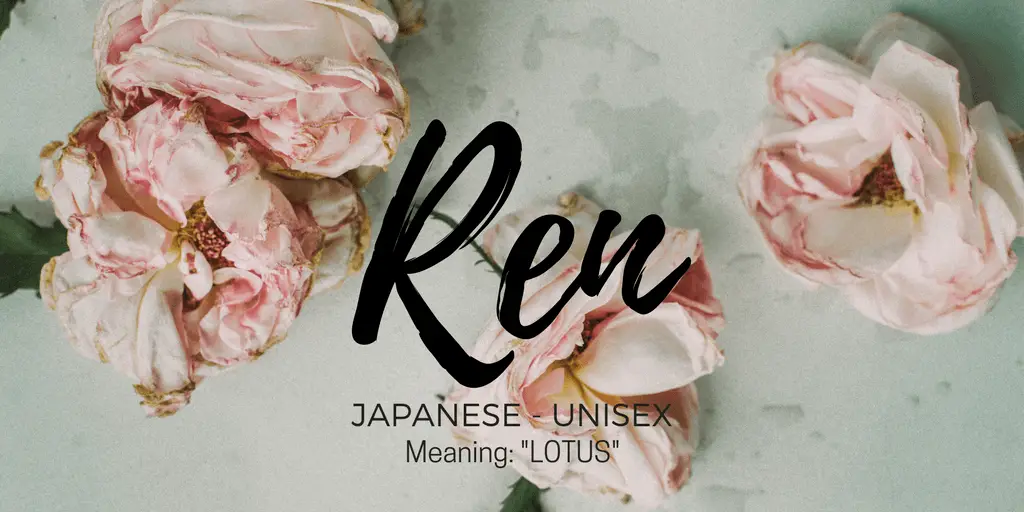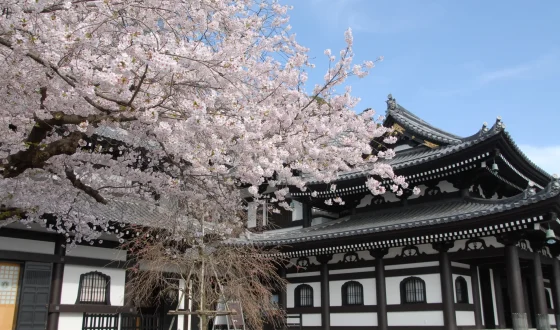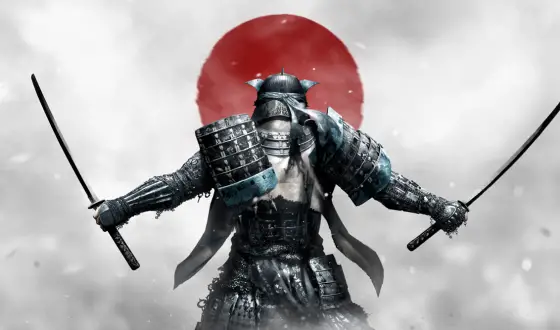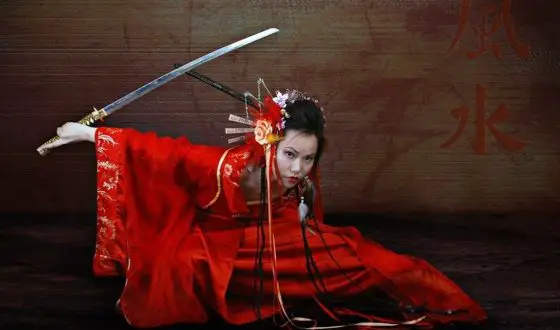102 Beautiful Japanese Unisex Names With Meaning
Japan, known as the “Land of the Rising Sun”, is famous for not only beautiful landscape and unique cuisine but also a variety of adorable names with different deep meanings which can be used for both boys and girls. Those Japanese unisex names do not just express ancient Japanese beliefs, but they also reflect Japanese artistic forms such as gardening haiku poetry, architecture and the noble lifestyles like the Samurai Bushido Code. Besides, some Japanese names also represent the birth order. However, each name in Japanese possesses its complicated meaning whether it is a traditional or a modern one. One Japanese name can even have an excess of meanings.
One interesting thing in Japan is that six days after the birth, a baby is given an informal name. When the child is 16 years old, he or she has a formal name that is given in a proper naming ceremony.
Below is a list of more than one hundred Japanses unisex names along with their meanings. Let’s check it out and create your own list of favourite names for your babies.
List Of 102 Japanese Unisex Names

When born, a baby in Japan can be given one name with many layers of meaning
Why do parents choose unisex Japanese name for their newborns?
It is popular for Japanese baby names to have a connection to nature or deliver meanings that reflect family and culture. Due to the fact that names for Japanese newborns are in most cases closely linked to their literal meanings, it is quite easy for people to indicate what a Japanese baby name implies only through looking or hearing it.
A unisex name is neutral in gender, which means it could be used to name both baby boys and girls without any difference. There are a lot of reasons why parents ponder on giving their children a non-binary name. You may consider the names are distinctive, adorable and fresh. Moreover, if you do not want to reveal your child’s sex at birth time, you can use a genderless name because it will work either both ways. And lastly, it avoids gender stereotyping concept and not to bound your little baby in one gender before birth.
What to pay attention
Distinction
Distinction is of importance when giving names for a baby. Try to pick those that are unique enough so that your baby won’t have the same name with some of his/her classmates. In case your youngster has a similar name, use the last name to avoid any mistake or embarrassment.
Religion
Religion is definitely one thing that you need to pay attention to when choosing a name. If you want something that relates to the holy people or your religion, go for spiritual names. Besides, remember to check the name carefully because some are totally fine to use in the modern world but refer to bad things in some religions.
Meanings
There is a wide range of Japanese unisex name with beautiful meaning. Yet, you likewise need to ensure that you should select a name with proper meaning.
Spelling and length
While choosing a unisex name, try to make sure that the name isn’t too entangled in spelling and short enough to remember.
List of Japanese gender neutral names
| No | Name (Jp) | Name (En) | Kanji | Meaning(Jp) | Meaning (En) |
| 1 | りょう | Ryo | 涼 | Cool, Cheerful, Neat and tidy | |
| 2 | はるき | Haruki | 春希 | Spring, Kind, The child born in Spring | |
| 3 | うみ | Umi | 海 | Ocean, Parents like Marine sports | |
| 4 | じゅん | Jun | 純 | Pure | |
| 5 | ゆう | Yu | 優 | Kind | |
| 6 | みどり | Midori | 緑 | Green, Healthy growing | |
| 7 | そら | Sora | 空 | Sky, Kind heart like big sky | |
| 8 | ひかる | Hikari | 光、陽 etc | ||
| 9 | あおい | Aoi | 葵 | 葵:アオイ科の植物を指し、成長して実を結んでほしいという願い。 | Persimmon: Representing a plant
in the mallow family that is fruitful |
| 10 | 蒼 | 蒼:草木が茂る様子を表し、たくましく生きてほしいという願い。 | Ao: lush plants desire to stretch out | ||
| 11 | あさひ | Asahi | 朝日 | 朝日:朝、東から昇る太陽やその光を表す。 | Asahi: morning, representing the
sun that rises from the east. |
| 12 | 旭 | 旭:朝日や日の昇る様子を意味する。 | Asahi: the sun in the morning | ||
| 13 | あすか | Asuka | 飛鳥 | 大空を飛ぶ鳥を指す。 | It refers to a bird flying in the sky. |
| 14 | そんな鳥のように広い世界で生きてほしいという想いで名付ける。 | Named with the expectation that I
want to live in the wide world like a bird |
|||
| 15 | いずみ | Izumi | 泉 | 湧き出す水の象徴。 | Stream |
| 16 | 秘めた可能性を発揮してほしいという想いで名付ける。 | Named with the expectation that I
want to demonstrate the hidden possibilities. |
|||
| 17 | いつき | Itsuki | 樹 | 樹:年月を越えて、大地に根 付き葉っぱを芽吹かせる樹を表す。 | Tree: A kind of tree whose roots will
grow on its leaves over the years |
| 18 | 一樹 | 大樹のように成長してほしいという想いで名付ける。 | Named with the expectation that I
want to grow as Taiki. |
||
| 19 | いぶき | Ibuki | 伊吹 | 伊吹:伊吹山のように大きな 心にという想いで名付ける。 | Ibuki: named with the thought of
being as big as Ibukiyama. |
| 20 | 息吹 | 息吹:呼吸や活気を表し、活力に満ちた未来をイメージさせる。 | Breath: represents breath and
liveliness, and an image of a lively future |
||
| 21 | うみ | Umi | 海 | 海のように広い心で深い
愛情を持つ子になるようにと名付ける。 |
Named to be a child with a deep
heart and deep love like the sea. |
| 22 | えのん | Enon | 絵音 | 絵:豊かな感性を持ちの
びのびと生きてほしい という想い。 |
Picture: A desire to live with rich
sensibility and freedom. |
| 23 | 音:音楽のように人を楽しませたり癒してほしいという想い。 | Sound: The feeling that you want
people to be entertained and healed like music. |
|||
| 24 | おと | Oto | 音 | 音楽などの文化・芸術全般の才能に恵まれるように。 | To be blessed with music and other
arts as well as other cultures in general. |
| 25 | 音楽のように人を楽しませたり、癒すことのできる人になるように。 | Be a person who can entertain and
heal like music. |
|||
| 26 | かずき | Kazuki | 和樹 | 樹:年月を越えて、大地に根付き葉っぱを芽吹かせる 樹を表す。 | Tree: A kind of tree whose roots will
grow on its leaves over the years |
| 27 | 一樹 | 和:穏やかな状態。一:
一つ、一番などを表す。 |
Sum: calm state. One: one, firstly | ||
| 28 | きずな | Kizuna | 絆 | 物をつなぎとめるものを
表す。 |
Represents something that holds
Things. |
| 29 | 人との出会いを大切にしてほしいという想いで名付ける。 | Named with the thought that we
want you to appreciate meeting people. |
|||
| 30 | きよ | Kiyo | 清 | 汚れがなくさっぱりしているという意味。 | Meaning that it is clean |
| 31 | 澄んだ心を持ち穏やかな人になるようにという想いで名付ける。 | Named with the intention of being
a calm person with a pure heart. |
|||
| 32 | くに | Kuni | 国 | 邦:我が国を表す。故郷を愛しながら雄大な視野を持つ。 | Kuni: representing our country.
I love the hometown with a magnificent view. |
| 33 | 邦 | 国際人になるようにという想いで名付ける。 | Named with the intention of
becoming an international person |
||
| 34 | けい | Kei | 京・圭 | 京:発信する力を持つよ
うに。圭:清らかで尊い 存在。 |
Today: to have the power to call.
Kei: pure and precious |
| 35 | 景・恵 | 景:雄大な風景を連想させる。恵:思いやりや素直の意味。 | Jing: reminiscent of the majestic
scenery. Megumi: the meaning of compassion and honesty |
||
| 36 | こはく | Kohaku | 琥珀 | パワーストーンの一つ。 | One of the powerful stones |
| 37 | 豊かさや幸運に恵まれるようにという願いで名付ける。 | Named with the expectation to be
rich and lucky |
|||
| 38 | さく | Saku | 作 | 手をかけて草木を育てた結果や仕上がり状態を表す。 | It shows the result and the
condition of growing plants by hand. |
| 39 | 地道に努力できる人になるようにという想いで名付ける。 | Named with the thought of being a
person who can make a steady effort. |
|||
| 40 | じゅん | Jun | 潤・純 | 潤:物心共に恵まれるようにという願いで名付ける。 | Jun: named with the desire to be
both physically and spiritually good |
| 41 | 純:自分に誠実で人から愛されるようにという願い。 | Jun: desire to be treated honestly and
loved by other people |
|||
| 42 | すばる | Subaru | 昴 | 牡牛座の星座の一つ。 | One of the constellations of Taurus. |
| 43 | 昔は王の象徴とされた。
気高く輝く人になるように。 |
It used to be a symbol of the king.
To be a nobly shining person. |
|||
| 44 | せな | Sena | 瀬名 | 瀬:川の歩いて渡れるほどの浅いところや急な流れを意味する。 | KH: It means a shallow spot or a
steep flow that you can walk across the river. |
| 45 | 困難に立ち向かう強さを持つようにという願いで名付ける。 | Name it with the wish of having the
strength to confront the difficulties. |
|||
| 46 | そら | Sora | 空 | 空を大きさや爽やかさをイメージさせる。 | I imagine the size and freshness of
the sky. |
| 47 | たまき | Tamaki | 環 | 輪の形や端のないことを
意味する。 |
It means that there is no form or end
of the wheel. |
| 48 | 人の輪を築き、人生で人との繋がりに困らないようにという想い。 | The idea of building a circle of
people and not being in trouble with relationships in life. |
|||
| 49 | ちかげ | Chikage | 千景 | 景:雄大な景色を連想さ
せる。 |
Jing: reminiscent of the majestic
scenery. |
| 50 | 多くの経験を経て様々な風景を見て成長できるようにという想い。 | The idea that you can see
various landscapes through a lot of experience. |
|||
| 51 | つばさ | Tsubasa | 翼 | つばさ以外にも助ける・守るや均整が取れた美しいものを表す。 | In addition to wings, it
represents a beautiful thing that helps / protects and proportions. |
| 52 | 大きく羽ばたいてほしいという想いが込められることが 多い 。 | It is often the case that you want to
make it fly. |
|||
| 53 | とも | Tomo | 友 | 友・朋:友だちを表す。 | Tomo Tomo: represents a friend |
| 54 | 朋 | 良い友人に恵まれるようにという想いで名付ける。 | Named with the desire to be
blessed with good friends. |
||
| 55 | なお | Nao | 尚 | 尚:尊ぶや高い等の意味があり、人を尊び志を高く持つ人に。 | Note: for those who highly respect
other people
|
| 56 | 直 | 直:文字通り、素直でまっすぐな人になるようにという想い。 | Straight: Literally, it is a desire to
be an honest and straight person. |
||
| 57 | なぎ | Nagi | 凪 | 風や波が静まることを表す。 | Indicating that the wind doesn’t
blow strongly and the waves are not big any more |
| 58 | 波の立たない穏やかな人生を過ごしてほしいという想い。 | I thought that I want to have a
peaceful life, not a stormy life |
|||
| 59 | なぎさ | Nagisa | 渚 | 水際や波打ち際を意味する。 | It refers to the water’s edge and the
beach. |
| 60 | 元気で活発な子に育つようにという想いで名付ける。 | Named with the idea of growing up to
be a cheerful and active child. |
|||
| 61 | なつき | Natsuki | 夏樹 | 夏:季節の夏や盛んなイメージを持つ。 | Summer: with the summer and a
thriving image of the season. |
| 62 | 夏生 | 夏生:文字通り、夏に生まれたことを表す。 | Natsuki: it literally means being
born in summer. |
||
| 63 | のあ | Noa | 野空 | ノアの箱舟を連想させる名前。海外では男の子の名前。 | Names reminiscent of Noah’s Ark.
The name of the boy abroad. |
| 64 | 元モーニング娘。の辻希美さんの娘さんはこの名前。(漢字は別) | Former Morning Musume. This is the
name of Nozomi Tsuji’s daughter. (In Kanji, it is different) |
|||
| 65 | はる | Haru | 春 | 春生まれの子どもにつけられることが多い。 | It is often given to children born in
spring |
| 66 | 春の暖かい、明るいイ
メージを持つ。 |
Warm spring, with a bright image. | |||
| 67 | ひかる | Hikaru | 光 | 明るい光を意味する。 | It refers to the bright light. |
| 68 | 希望を持ち輝く人生になるようにという願いで名付ける。 | Named with a wish to have a bright
life with a lot of hopes |
|||
| 69 | ひなた | Hinata | 日向 | 太陽の光の当たるところを 指す。 | It refers to the place where the sun
shines |
| 70 | 明るく元気なイメージを持 つ。 | With a bright and cheerful image. | |||
| 71 | ほまれ | Homare | 誉 | 名誉や正す、楽しむ等の
意味を持つ。 |
It has the meaning of honor,
correction, and enjoyment |
| 72 | 周囲から認められる人に
なってほしいという想い で名付ける。 |
Named with the desire to be a
person recognized by the society |
|||
| 73 | まお | Mao | 真央 | 真:まこと、正しいこと。央:真ん中。 | True: Makoto, the right thing.
Central: middle. |
| 74 | 文字通り、まっすぐ正しく生きてほしいという想い。 | Literally, I want to live straight | |||
| 75 | まこと | Makoto | 誠 | まこと、本当の、真実を
意味する。 |
Makoto, true, means the truth. |
| 76 | 素直で誠実な子になってほしいという想いで名付ける。 | Named in the thought that I want
you to become a honest and sincere child. |
|||
| 77 | みずき | Mizuki | 瑞樹 | 瑞:天子が諸侯に授ける宝を表す。めでたいこと。 | Rui: Tenshi represents a
treasure to bestow on the princes. Auspicious thing. |
| 78 | 生き生きと生きてほしいという想いで名付ける。 | Named in the thought that I want you
to be vividly alive. |
|||
| 79 | みつき | Mitsuki | 充希 | 充:いっぱいになること。希:希望。 | Charge: to be full. Nozomi: hope. |
| 80 | 希望で充ちた人生になるようにという想いで名付ける。 | Named with the desire to live a life
full of hope. |
|||
| 81 | みらい | Mirai | 未来 | 文字通り、未来に進んでいくという意味がある。 | Literally, there is a sense that we
proceed to the future. |
| 82 | むつき | Mutsuki | 睦月 | 一月の旧暦月名である。 | It is a lunar month name of January. |
| 83 | 一月生まれの子ども名付けられることが多い。 | Children born in January are often
named. |
|||
| 84 | ゆう | Yu | 優 | 優:優しく上品な子どもになるようにという想いで名付ける。 | Yu: Named with the thought of
becoming a kind and elegant child. |
| 85 | 遊 | 遊:縛られす自分の道を進んでほしいという想いで名付ける。 | Yu: Bound be named in the feelings of wanting proceed my way. | ||
| 86 | ゆうき | Yuuki | 優希 | 優希:優しく希望のある子に育つようにという想い。 | Yuki: A desire to grow up as a
child with hope. |
| 87 | 悠希 | 悠:ゆったりと心の落ち
着いた人になるように。 |
Yu: To be a calm and relaxed person. | ||
| 88 | ゆうり | 侑李 | 侑:人助け、思いやり。
季:彩り豊かな自然、 生命力。 |
侑: helping others, caring.
Season: colorful nature, vitality |
|
| 89 | 侑李 | 侑:人助け、思いやり。
季:彩り豊かな自然、 生命力。 |
侑: helping others, caring.
Season: colorful nature, vitality |
||
| 90 | より | Yori | 頼 | 人から頼られるしっかりした人になるようにという想い。 | The desire to be a reliable person
that people can rely on. |
| 91 | りおん | Rion | 莉音 | 莉:人を和ませ、癒すような 温かい人になるように。 | 莉: making people feel relieved |
| 92 | 音:音楽のように人を楽
しませたり癒してほしい という想い。 |
Sound: the thought that I want to heal
or to entertain people like music. |
|||
| 93 | りつ | Ritsu | 律 | 掟や定め、手本とするものを意味する。 | It means something that is used
as an example or a rule. |
| 94 | 自分の規律を持ち強い意思を持つ子になるようにという想い。 | A desire to be a child who has his
own disciplines and intentions. |
|||
| 95 | りょう | Ryo | 涼 | 涼:クールで聡明な知的な子に成長してほしいという想い。 | Ryo: I want you to grow into a
cool and intelligent child. |
| 96 | 綾 | 綾:綾物からきており、
繊細さや美しさをイメージさせる。 |
Aya: it has come from Aya
product, an image of delicacy and beauty. |
||
| 97 | りお | Rio | 莉緒 | 莉:人を和ませ、癒すような 温かい人になるように。 | 莉: making people feel relieved |
| 98 | 緒:人との繋がりを大切に思 いやりのある子になるように。 | Cord: be a caring child who
values connections with people. |
|||
| 99 | かおる | Kaoru | 薫 | 香りをいぶして周りに広めるという意味。古風な印象を与える。
人にいい影響を与える人になってほしいという想いが込められる。 |
It means spreading the scent around
you. Give an old-fashioned impression. It can be thought that I want you to be a person who has a positive influence on people. |
| 100 | しのぶ | Shinobu | 忍 | 耐える、人目を避ける、忍の意 味がある。昔から使われる古風 な名前。
我慢強く、粘り強い精神的な 強さを持つ子になってほしいという想い。 |
Endure, avoid the public eye, there is
a sense of Shinobu. Old-fashioned name that is used for a long time. Patience, thought that I want you to become a child with tenacious spiritual strength. |
| 101 | ちひろ | Chihiro | 千尋 | 山が非常に高いこと、海が非 常に深いことを意味する。
深みのある子に育ってほしいという想いが込められる。古風な印 象。 |
The mountain is very high, and the
sea is very deep. It can be thought that I want you to grow up to be a child with depth. Old-fashioned impression. |
| 102 | つかさ | Tsukasa | 司 | 役人や官職、管理する意味。昔の役職を表し古風な雰 囲気。
責任感や判断力があり頼りが いのある子になってほしいという想い。 |
Official or official position, meaning to
manage. Old-fashioned atmosphere that represents the old post. I thought that I want you to become a reliable child with a sense of responsibility and judgement. |
SEE MORE:
FAQs
1. What are the most common unisex names in Japan?
- Akari: “lights” or “brightness”.
- Chihiro: “thousand, abundance”.
- Hayami: “rare beauty”.
- Masa: “just or true”.
- Toshiro: “talented or intelligent”.
- Tsukasa: “mound, (small) hill”.
- Yamato: “old Japan.”
- Yoshi: “silent or quiet.”
- Yū: “tenderness” or “superiority”.
- Yukio: “happy or fortunate.”
2. What is the rarest neutral name in Japan?
Unlike some of the other names on the list mentioned above, Mami does not have one fixed meaning. Instead, the Kanji combinations lead to several meanings that include terms like “real”, “love”, “see” , “genuine” and even “ten thousand”. This might be due to Mami’s unisex status, which means that traditionally masculine or feminine attributes are not as applicable with this name. It’s quite rare to use for babies nowadays, but people named Mami today were probably born between the 1940s and 1970s.
3. How can you tell if a Japanese name is gendered?
In Japan, you can easily recognize one’s gender based on their name as there are certain patterns contained in one name that have been assigned to one particular gender. For instance, first names ending with -ro, -shi, -ya, or -o are typically male first names, while names ending in -ko, -mi, -e and -yo are prefered to use for females.
Interestingly enough, there are names that are pronounced in the same way but differ in meaning because they use different Kanji characters in writing. There are also different writing systems, therefore a name translated into the Latint alphabet may have multiple meanings depending on which system is used, or within the kanji system itself which characters are used. It’s always best to research names that fit well for your family and child, to make sure you find the perfect one for your child.
4. Are all Japanese names unisex?
The answer is NO. In fact, most of Japanese given names tend to be gender-specific, except from a small number of names that you call non-binary.
5. Are Japanese unisex names considered unisex based on how they sound or the Kanji?
The fact is that it varies. In most cases, you can recognize one’s gender when reading his or her name because the word itself contains certain patterns (kanji) that can be possibly used for both sexes.
There are still cases where you can not be sure whether a person is masculine or feminine. A typical example is Kaoru. Interestingly, the kanji commonly used for kaoru (薫) can be used for both sexes so you can’t make sure about the person’s gender until you actually see his/her face. A rather extreme case is names ending in “mi”. The character mi (美) means beauty, as such, it is very common in female names. But the names Naomi and Akemi can be used for males as it is written in different kanji.
6. Are unisex names popular in Japan?
Generally, unisex names are becoming popular in Japan these days. Especially, you can see many renowned celebrities who have gender-neutral names in Japan. According to Wikipedia, there are a lot of celebrities who have unisex names. For example, “Jun Matsumoto”, “Izumi Sakai”, and “Hikaru Utada.”
Conclusion
If you are expecting a baby or considering having a child, then you must research names carefully. We have already gathered a lot ideas for the best Japanese unisex names. There are charming, trendy, cute and even cool ones. In conclusion, we hope you find out the most unique from the above lists.









